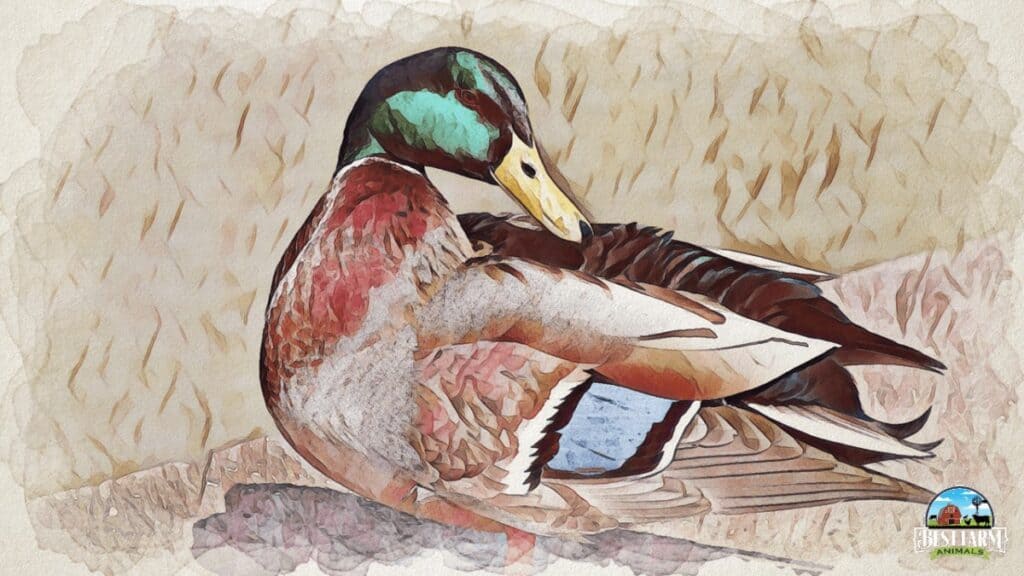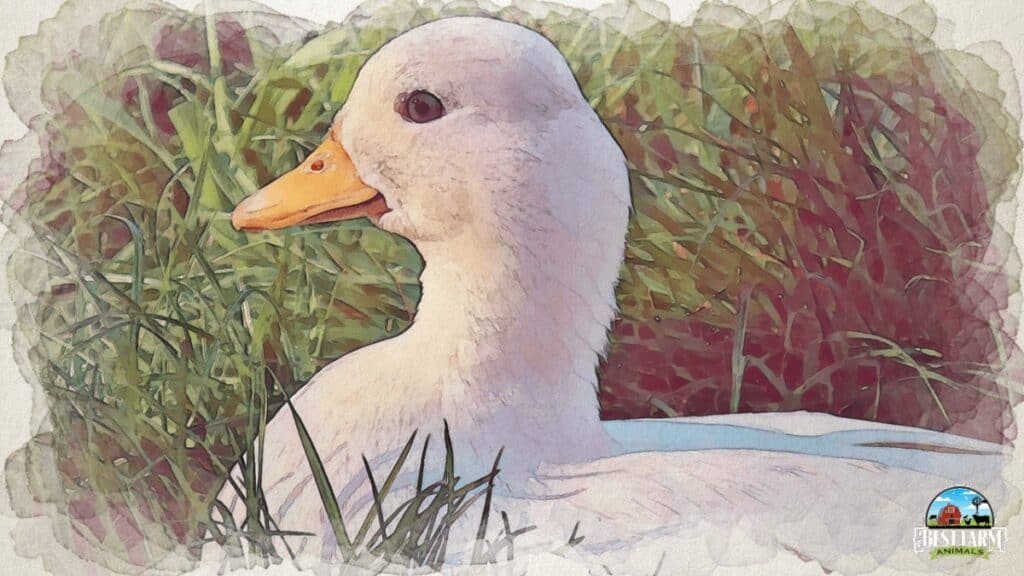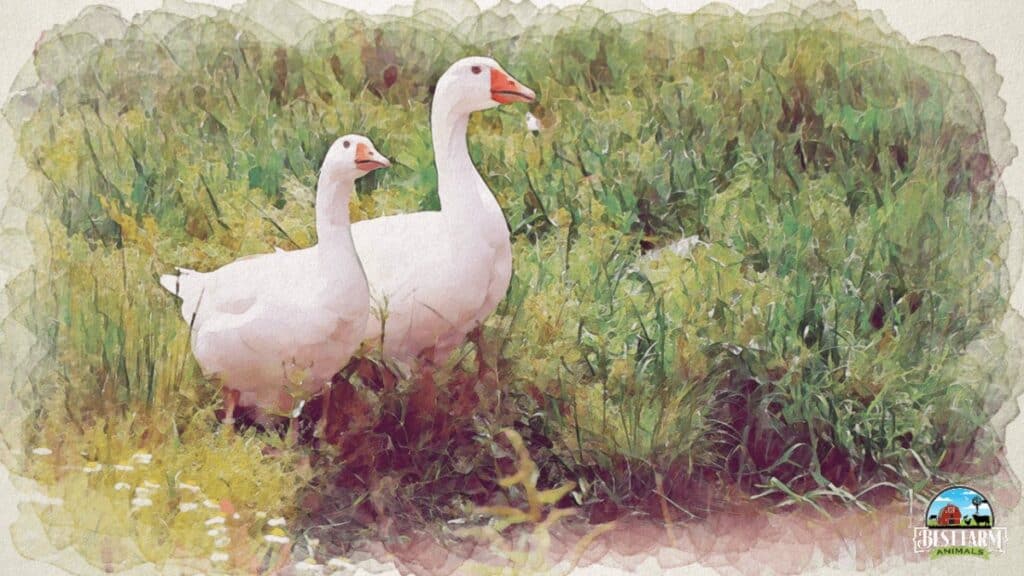As someone who has raised miniature ducks before, I know firsthand how much joy these small creatures can bring. Miniature ducks are perfect for anyone who doesn’t have the space or resources to care for full-sized ducks. Miniature ducks offer all the benefits of duck ownership in a smaller package.
They require less space, are easier to manage, and have all the charming quirks that make ducks such entertaining pets.
In this article, I’ll share why raising miniature ducks is a great choice and what you can expect from these pint-sized waterfowl. So, let’s take a closer look at the world of miniature ducks and discover why they might be the perfect addition to your household or homestead.
How Big Is A Miniature Duck? A miniature duck weighs an average between 1 pound to 5 pounds. The weight of small duck depends on breed and sex–for example, males are generally a bit larger than females. Just like large duck breeds, the males are commonly bigger than their counterpart. They’re also taller than female ducks.
Let’s explore why miniature ducks are so great, what small duck breeds to consider, and potential cons to be aware of.
6 Reasons You Should Raise Miniature Ducks
Larger duck breeds might rule the pond, but miniature ducks have their own worth on the homestead. There are a lot of benefits of having miniature ducks that might surprise you. Here are reasons why small ducks rock:
1. Miniature Ducks Are Easier to Keep Than Larger Duck Breeds
Miniature ducks are easy keepers. In comparison to larger breeds, they are light eaters, usually require less space, and are considerably cleaner. Most miniature ducks are surprisingly quite strong and adapt well. Many miniature duck breeds are also beloved by kids because of their small sizes, that’s why they’re great home pets.
2. Miniature Ducks Are Great for Small Farms
Many people would love to raise ducks but balk at the size most breeds because they don’t have enough space. Miniature ducks can be kept in your backyard. This is a major advantage of these breeds! Bear in mind that while these breeds require less space, you still need to provide more space per bird.
3. Small Duck Breeds Are Perfect for Showing
Because of their small size, miniature ducks are bred specially for ornamental purposes. Thus, they’re also under ‘show-birds’ category. Dazzle the judges with pedigree miniature ducks, and perhaps win a prize. These small ducks are also easier to transport than large breeds.

4. Miniature Ducks Are Less Expensive to Raise
Miniature ducks consume far less feed than larger ducks, which will definitely show on your monthly bill! While the initial cost of some of these breeds may equal or be even higher than the price of large breeds, they’re less expensive to keep per bird.
5. Rare Miniature Duck Breeds Can Be Sold at High Price
With miniature duck breeds, you can not only save money but also generate a steady side income in breeding. We all know that homesteading takes money and every bit saved or made counts.
Most of these small ducks are rare and therefore considered more valuable. You’ll be mostly targeting bird enthusiasts, collectors, breeders, and folks in the show world–all of whom are willing to pay more for interesting variations and high-quality birds.
If you aren’t interested in selling ducklings, remember that you can always sell fertile-hatching eggs. People love the experience of hatching their own eggs! Just make sure you’re extra careful with labelling.
6. Small Duck Breeds Are Best Pets at Home
Smaller ducks are easier to handle and make great pets on the homestead. It may take time to bond with them, but with endearing personalities and long lifespans, these feathered friends are worth the effort. Some miniature ducks are especially great for kids!
Cons of Keeping Miniature Ducks
Even with all the pros of raising miniature ducks, there can some disadvantages of raising small ducks over larger duck breeds.
Miniature ducks are less productive. On average, the smaller the bird, the less it produces in meat and eggs. However, breeds like the Miniature Silver Appleyard are exceptional layers, so don’t cross bantam breeds off your list! If you’re more interested in self-sufficiency, these duck breeds may not be for you.
Small duck breeds are priced higher than large breeds. Because many of these breeds are rare and ornamental, you can generally expect to pay more upfront. However, you’ll save on feed and other ongoing expenses in comparison to raising large breeds.
Miniature ducks are more difficult to find. It’s much more difficult to track down a local breeder of silkie ducks, for example, than it is your typical runner duck. You may need to expand your search to out-of-state. That said, this means there’s a potential void in the market that you can fill for a nice side income.

Popular Miniature Ducks
Of all the small duck breeds, the most popular mini ducks are Call ducks, Mini Silver Appleyard, and the mini Mallard duck breeds.
A scaled-down version the Mallard, the Mini Mallard is a fantastic option for people who want to keep ducks but don’t have a lot of space. They are typically 25% smaller than their full-sized counterparts. Mini Mallards have equally stunning plumage and the same distinctive green head and wings as regular Mallards. They are a fantastic option for beginners because they are resilient and simple to maintain.
The Mini Silver Appleyard boasts striking silver and white plumage. They are known for their amiable and inquisitive personalities. They were developed as a relatively new breed in the United Kingdom in the 1980s. Mini Silver Appleyards are active ducks that love to forage and swim but are also docile and easy to handle.
Call ducks are one of the smallest domestic duck breeds, with males weighing around 1 pound and females weighing around 14 ounces. Their distinctive “quack,” sounds more like a high-pitched whistle. Call ducks come in a variety of colors, including white, gray, and mallard-patterned. They are active, intelligent, and social ducks that thrive on human interaction. Call ducks are great for backyard flocks, as they require very little space and are easy to care for. They are also popular in the exhibition circuit, where their small size and striking appearance make them a favorite among breeders.
Check out all seven breeds of miniature ducks to explore which small duck is right for your homestead!
Miniature Duck Breeds FAQs
Can Miniature Ducks Fly?
Miniature ducks are able to fly. They are more capable to fly than large, domesticated duck breeds because of their small size. Because they are a lighter weight, they will be able to fly, with some miniature ducks flying longer stretches, while others may be unable to fly. It will depend on their exact lineage and breed mix.
Can You Keep Miniature Ducks in the House?
Miniature ducks can be kept in the house with the help of a specially-made duck diaper. Please provide your duck with access to fresh water to swim and bathe in, and keep your duck safe from other house pets! It’s best to provide space outside for your pet duck.
My Preferred Duck Supplies and Equipment
This list contains affiliate products. Affiliate products do not cost more but helps to support BestFarmAnimals and our goal to provide farm animal owners with accurate and helpful information.
Ducks can eat non-medicated chicken food or a specially formulated feed for ducks like this duck starter feed.
Mealworms as a protein treat, are easy to keep on hand. I try always to have some available.
An automatic feeder and waterer keep the mess down. I like this one because ducks can submerge their beaks, which is necessary for healthy eating.
DE or Diatomaceous Earth helps to keep bugs and pests down. I prefer food grade so it doesn’t hurt my ducks.
Niacin Tablets and Brewers Yeast are both very helpful in keeping ducks healthy.
Conclusion
In conclusion, as someone who has experience raising ducks, I highly recommend considering miniature breeds for your backyard or homestead. These small but mighty waterfowl offer all the charm and entertainment of full-sized ducks but are easier to care for and manage.
Whether you’re looking for a low-maintenance pet or a productive farm animal, miniature duck breeds like the Call, the East Indie, and the Malalrd are excellent choices. They are hardy, adaptable, and have unique personalities that will bring joy and laughter to your life. So, if you’re thinking about getting ducks but aren’t sure where to start, consider starting with a miniature breed – you won’t be disappointed!

